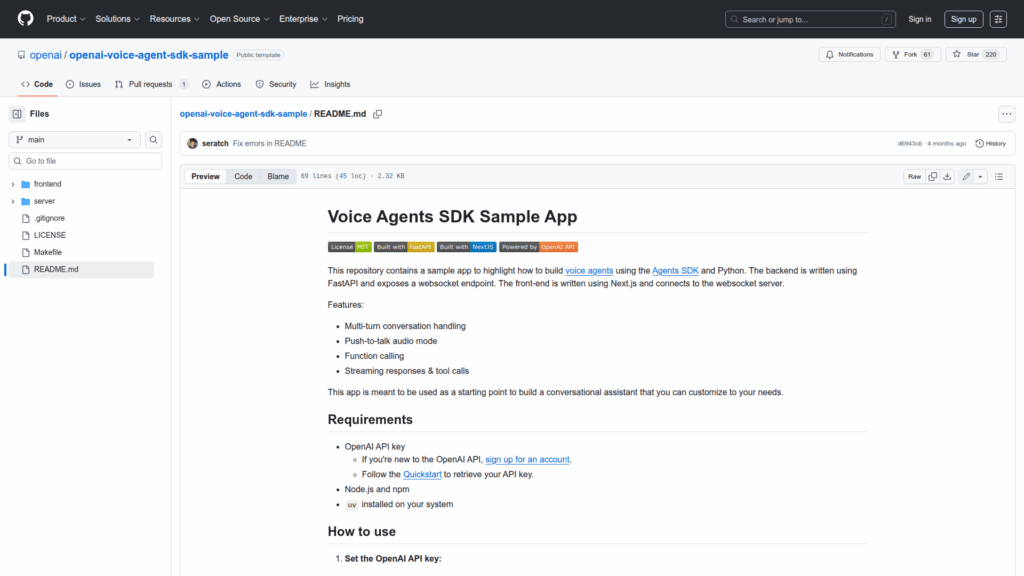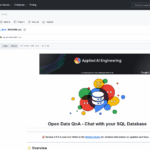openai-voice-agent-sdk-sample
Basic Information
This repository contains a sample application that demonstrates how to build voice agents using the Agents SDK and Python. The backend is implemented with FastAPI and exposes a websocket endpoint while the frontend uses Next.js to connect to that websocket. It is intended as a starting point and reference for developers who want to add voice, streaming and function-calling capabilities to conversational assistants. The sample highlights multi-turn conversation handling, a push-to-talk audio mode, function calling, and streaming responses and tool calls. It requires an OpenAI API key and local tools such as Node.js, npm and uv. The README includes setup steps to set the OPENAI_API_KEY, clone the repository, install dependencies via make sync, and run the app via make serve. The app runs locally at localhost:3000 and is distributed under the MIT License.








